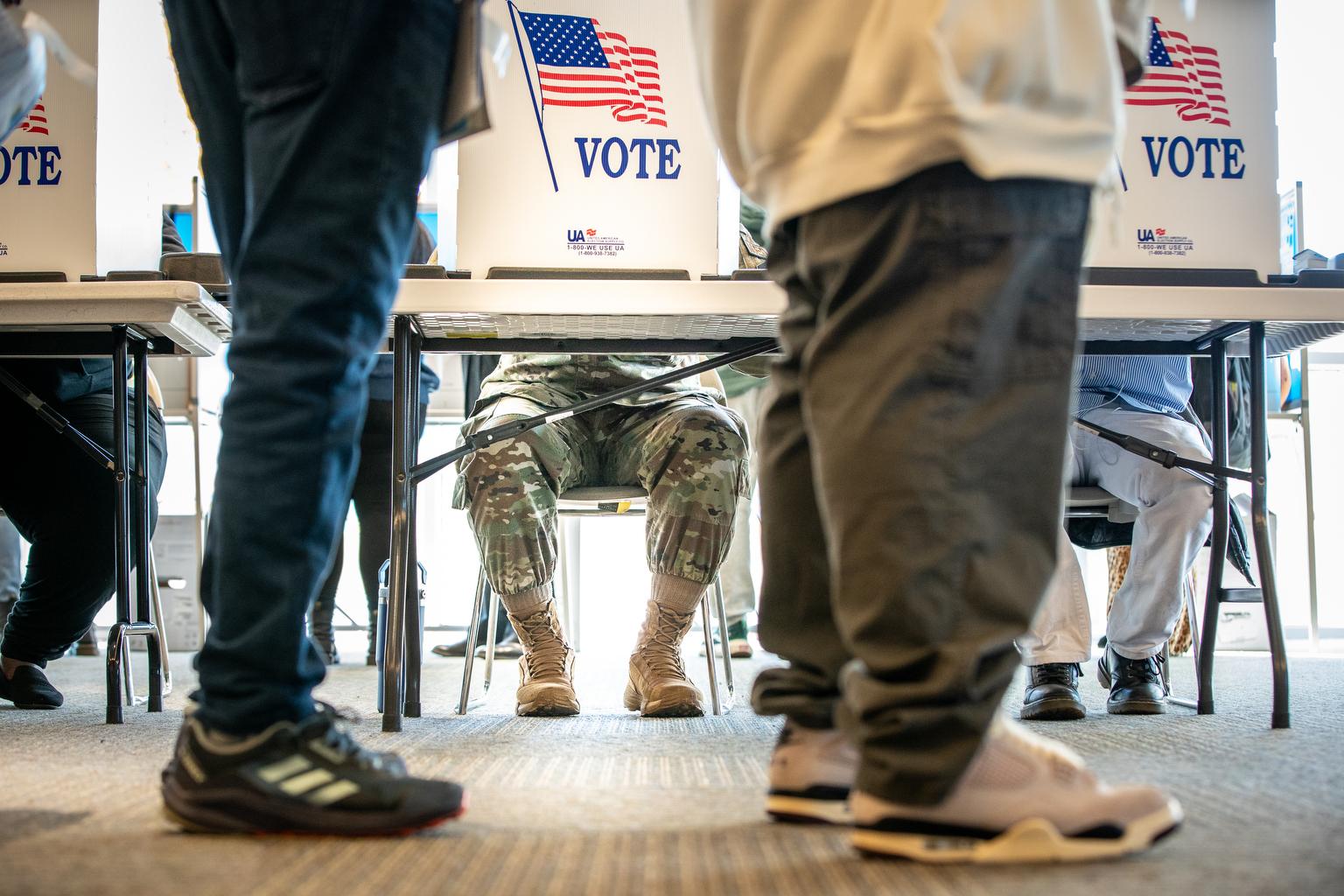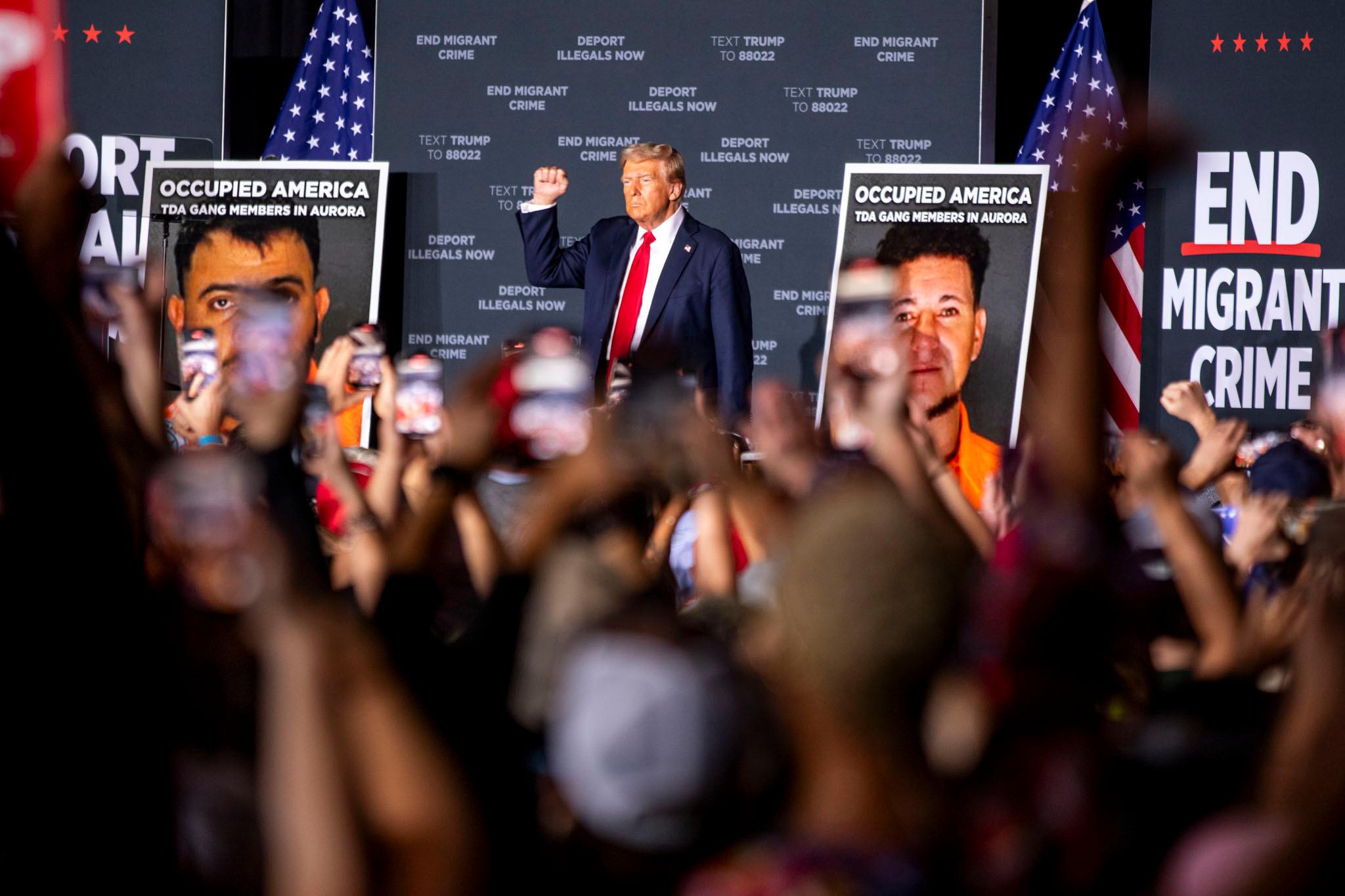
Immigration, abortion, housing and the cost of living were top of Coloradans’ minds as they returned their ballots this fall.
The Colorado Polling Institute, an independent nonprofit that conducts public opinion research, surveyed 822 voters between Oct. 25 and Nov. 4 on their views of the issues at stake, as well as their comfort with the election system itself.
When surveyors asked people to name the most important issues state government should address, they heard a wide variety of responses, but economic concerns — from inflation and the scarcity of housing to jobs and wages — were the main things most people wanted to see addressed.
“The prices are so bad,” said Adams County voter Liz Cardenas in September. “Gas. Electrical. The food. You need to have your own garden and do your own planting” to have fresh food.
Rounding out the top issues, 12 percent of people in the survey talked about immigration and the border, while another 10 percent each said abortion or housing issues should be priorities for Colorado policymakers.
That’s a big change from this past March, when abortion didn’t make the top 10 list of voter concerns. However, after months of the issue taking center stage in Democratic campaigns for president and Congress, as well as showing up as an amendment on Colorado ballots, its urgency clearly climbed in many voters’ minds.
“For women to lose our rights that we did with Roe v. Wade, that set a lot of momma bears off,” Commerce City resident Gina Strain told CPR News ahead of the election. “That needs to be corrected. Women’s rights, they matter.”
The Voter Voices survey conducted by CPR News, COLab and other Colorado newsrooms throughout the heat of the election turned up similar priorities, with one big difference.
In the Voter Voices poll, which presented people with a list of issues to choose from — and didn’t specify whether to think in terms of state government or federal — democracy and good government was a top pick. When CPI’s poll let people name their own issues, only 1 percent of voters said election integrity and democracy should be a main concern for Colorado’s state government.
Turnout continued its downward trend
The Coloradans who voted were deeply invested in this year’s presidential election, according to the CPI poll, with 85 percent saying the outcome would matter quite a bit, or more, to their family. Those views are inline with how voters across the country felt about the importance of the race.
However, the other story of this election is that a smaller share of Colorado voters returned their ballots than in any presidential election since 2002, well before the state moved to reforms like using all mail ballots that were intended to increase voter participation.
Some of the rise and fall in turnout may be credited to the few cycles Colorado was a bona fide battleground state. National data suggests that turnout is driven up by the focused attention campaigns give swing states, as well as voters’ increased awareness of the power of their vote.
This year’s turnout figures also show the increasing power of Colorado’s unaffiliated voters. Fewer registered Democrats and Republicans returned ballots compared to 2020, while the total number of unaffiliated ballots climbed slightly.
Drilling down on voters’ choices
For those who did return their ballots, the survey captured a shift among voters — from starting out the election season more opposed to the other party’s candidate, to becoming more actively in favor of their own.
In a spring survey conducted by CPI, 63 percent of those who planned to vote for Joe Biden for president said their real motivation was to vote against Donald Trump. By the time the election arrived, only 36 percent said that, with the rest voting affirmatively for Kamala Harris.
Trump voters also swung a bit in their motivation. In the spring, 45 percent said they were casting their ballots against Biden, a number that dropped to 24 percent by Election Day.
When it comes to ballot measures, Coloradans continue to say they are glad to have the chance to vote directly on the state’s laws and constitution, despite the long ballots and reams of research that can entail.
The survey also turned up intriguing details on the fate of Prop. 131, which would have changed how the state elects its leaders by introducing all-candidate primaries and ranked choice voting.
The measure failed by just over 7 points, but the survey found a generation gap between the yes and no votes.
The idea was popular with voters aged 44 and younger, especially men, but opposed by almost 60 percent of voters 45 and over.
While both major political parties fought against Prop. 131, their voters felt differently. 70 percent of Republicans in the survey thought it was a bad idea, versus less than half of Democrats and unaffiliated voters.
Faith in Colorado’s elections still runs high
Major elements of Colorado’s voting system were targets of conservative suspicion this year — in particular mail ballots and 24-hour drop boxes. However, an overwhelming majority of people in the survey said they are satisfied with how the state conducts its elections.
The results do have a bit of a partisan flavor; only 72 percent percent of Republicans are happy with the current system, versus 99 percent of Democrats. And when they were asked to grade how well their local officials do with running elections, 95 percent of Democrats gave them an A or B, compared to 45 percent of Republicans.
The Voter Voices survey turned up similar ideological divides when it comes to trust in elections. More than 90 percent of liberals said they were confident Colorado’s elections would be conducted fairly, versus 39 percent of Republicans.
When it came to the national vote, conservatives were even more skeptical: Only 13 percent said they had full confidence in the process ahead of the election. By contrast, 54 percent of liberals said they had faith in how well the election would be conducted nationwide.









